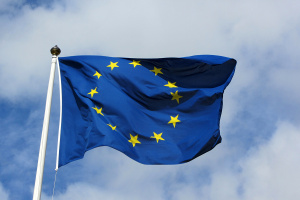EU Bureaucracy likely to set MiFID II implementation back even further
The global drive toward a one-size-fits-all regulatory structure for the electronic financial markets industry began some six years ago when the United States implemented the Dodd-Frank Wall Street Reform Act, signed into US law by President Barack Obama. With the comprehensive new set of rules came new reporting standards, in which all trades in the […]

The global drive toward a one-size-fits-all regulatory structure for the electronic financial markets industry began some six years ago when the United States implemented the Dodd-Frank Wall Street Reform Act, signed into US law by President Barack Obama.
With the comprehensive new set of rules came new reporting standards, in which all trades in the institutional sector must be conducted via a central counterparty, and OTC derivatives trading became subject to stringent due diligence rulings and very high net capital adequacy requirements, largely spurred by the collapse of both MF Global and Peregrine Financial Group, which resulted in tremendous client losses at a time when the world was still in the midst of a financial crisis.
Europe followed suit, setting in place its new EMIR (European Market Infrastructure Regulation) directive, which set out the method by which trades
All standardized OTC derivative contracts should be traded on exchanges or electronic trading platforms, where appropriate, and cleared through central counterparties by end-2012 at the latest.
Additionally, OTC derivative contracts should be reported to trade repositories and non-centrally cleared contracts should be subject to higher capital requirements. The European Commission asked the Financial Stability Board and its relevant members to assess regularly implementation and whether it is sufficient to improve transparency in the derivatives markets, mitigate systemic risk, and protect against market abuse.
Several years on, the MiFID II (Markets in Financial Instruments Directive) is still being thrashed out by the European Commission, which, in February this year set back the implementation date to January 2018, some nine years after its initial draft.
In its original proposed form, MiFID retained the principles of the EU “passport” introduced by the Investment Services Directive (ISD) which allows companies in EU member states to onboard clients from other EU member states and still offer them regulatory protection, but introduced the concept of “maximum harmonization” which places more emphasis on home state supervision.
This is a change from the prior EU financial service legislation which featured a “minimum harmonization and mutual recognition” concept. “Maximum harmonisation” does not permit states to be “super equivalent” or to “gold-plate” EU requirements detrimental to a “level playing field”. Another change was the abolition of the “concentration rule” in which member states could require investment firms to route client orders through regulated markets.
Despite a controversial delay until January 2018 having been announced in February, the European Commission has now called for the European Securities and Markets Authority (ESMA) to take yet another look at the MiFID rules, creating further potential delays.
Institutions which include banks, institutional and retail electronic trading companies and asset managers in London have asked for the MiFID directive to be finalized as soon as possible so that they have sufficient time to prepare for the new deadline of January 2018, however the European Commission’s call for further review has generated concerns that the new deadline will now not be met.
Michael McKee, Head of Financial Services Regulation at law firm DLA Piper explained last week:
“The clock is ticking on implementation and today’s announcement will inevitably delay the finalisation of the standards. However, the European Commission is unlikely to favour postponing the directive further, so 3 January 2018 will still be the likely implementation date.”
“I am glad to see that the European Commission takes the concerns of the European Parliament seriously. The latest drafts were far from being acceptable for the European parliament,” said European Parliament MEP and rapporteur for MiFID II, Markus Ferber.
Whilst the American rulings have been in place for six years already, there is still no fixed date on the European implementation, however America’s markets are somewhat more homogeneous than those of the European Union.









